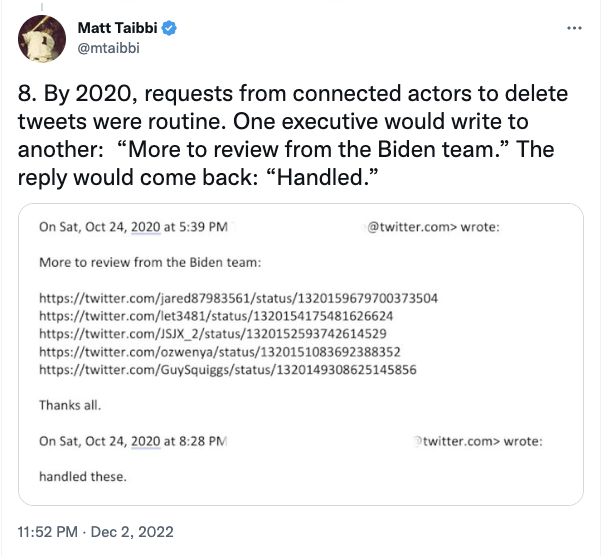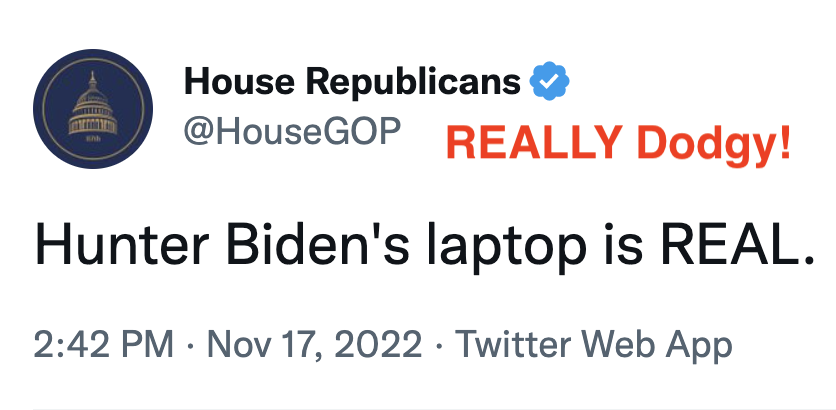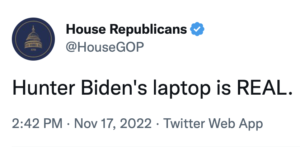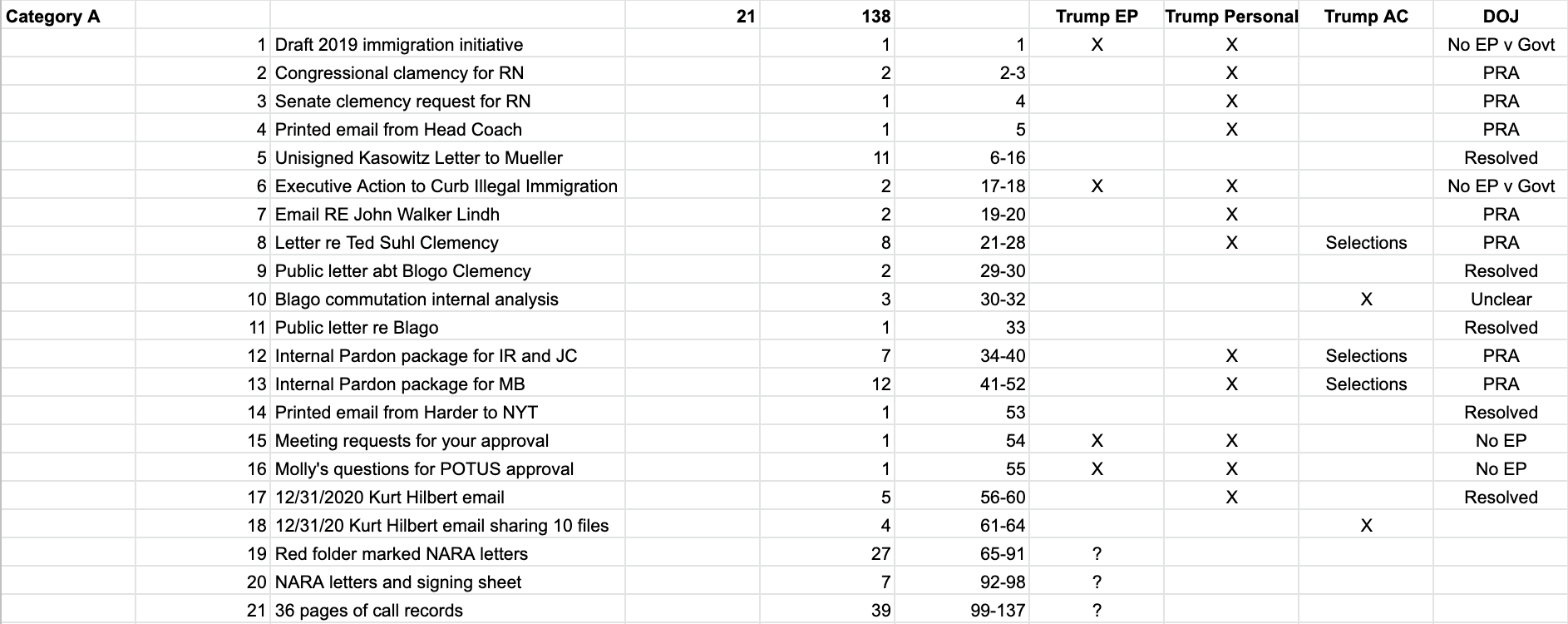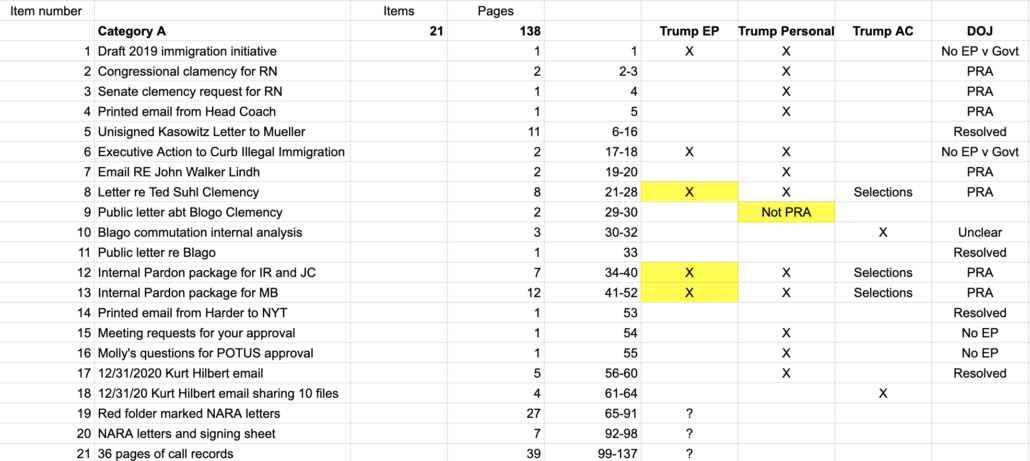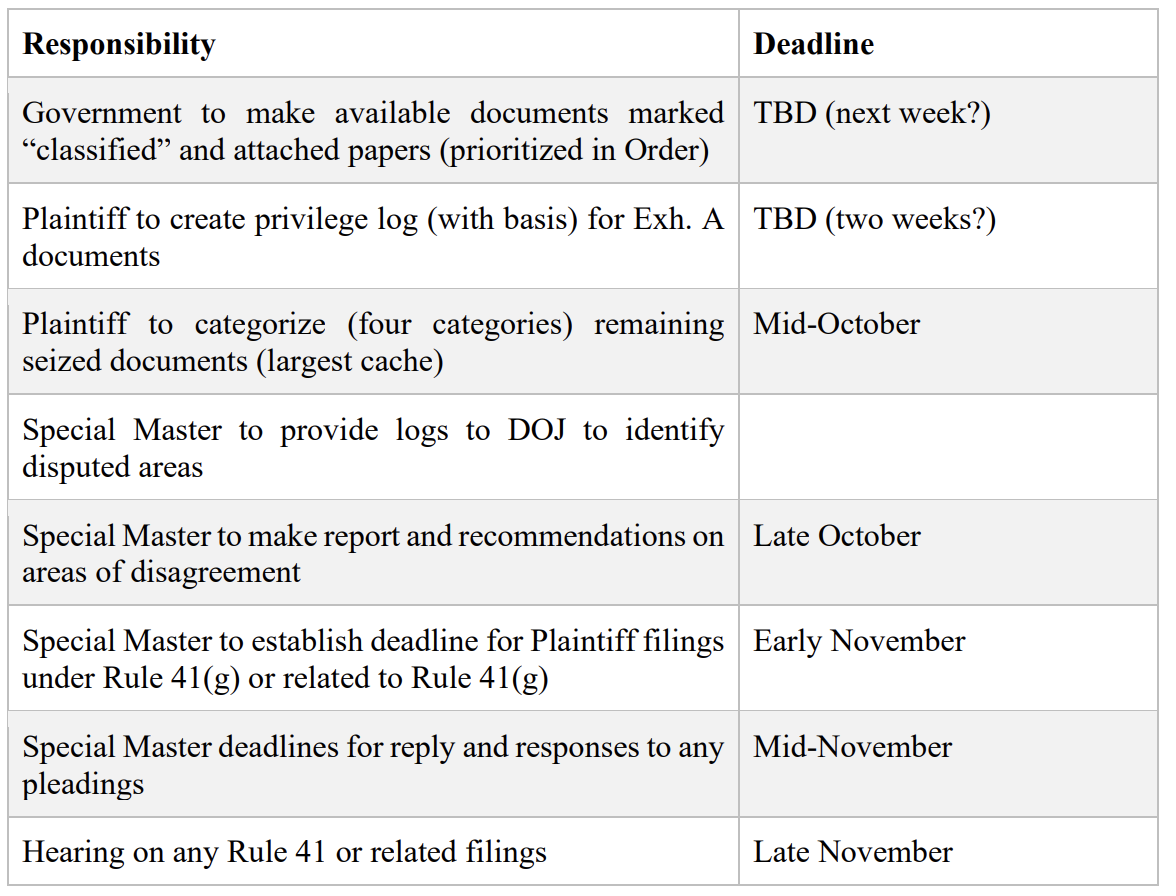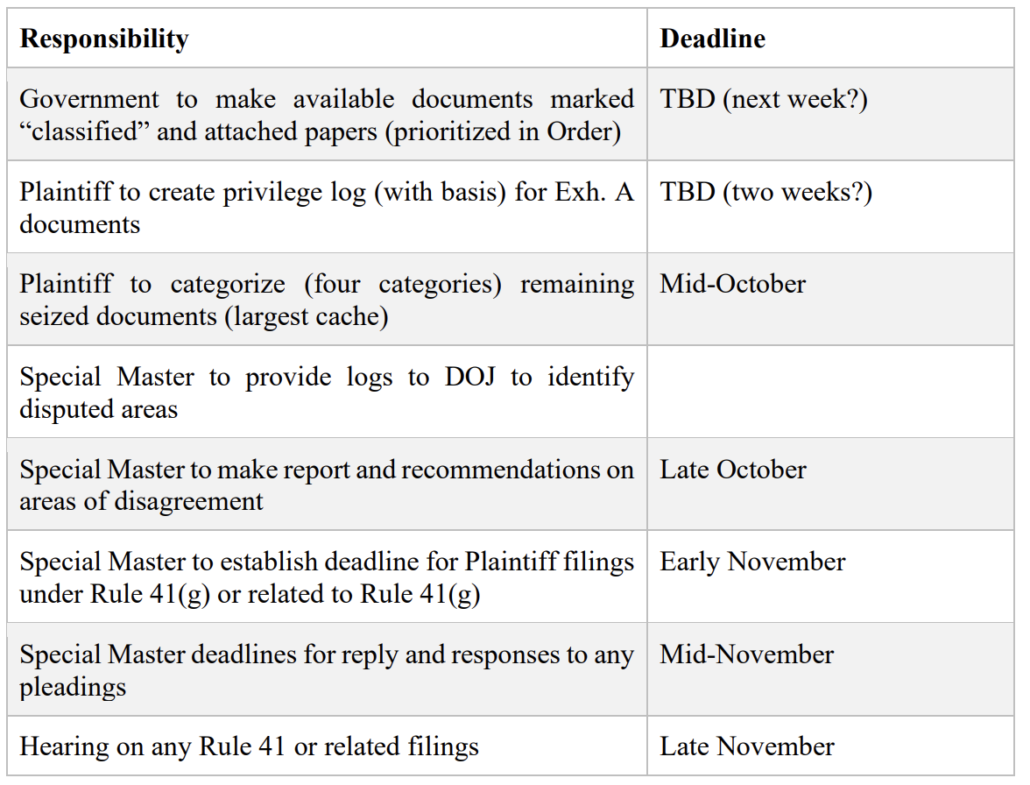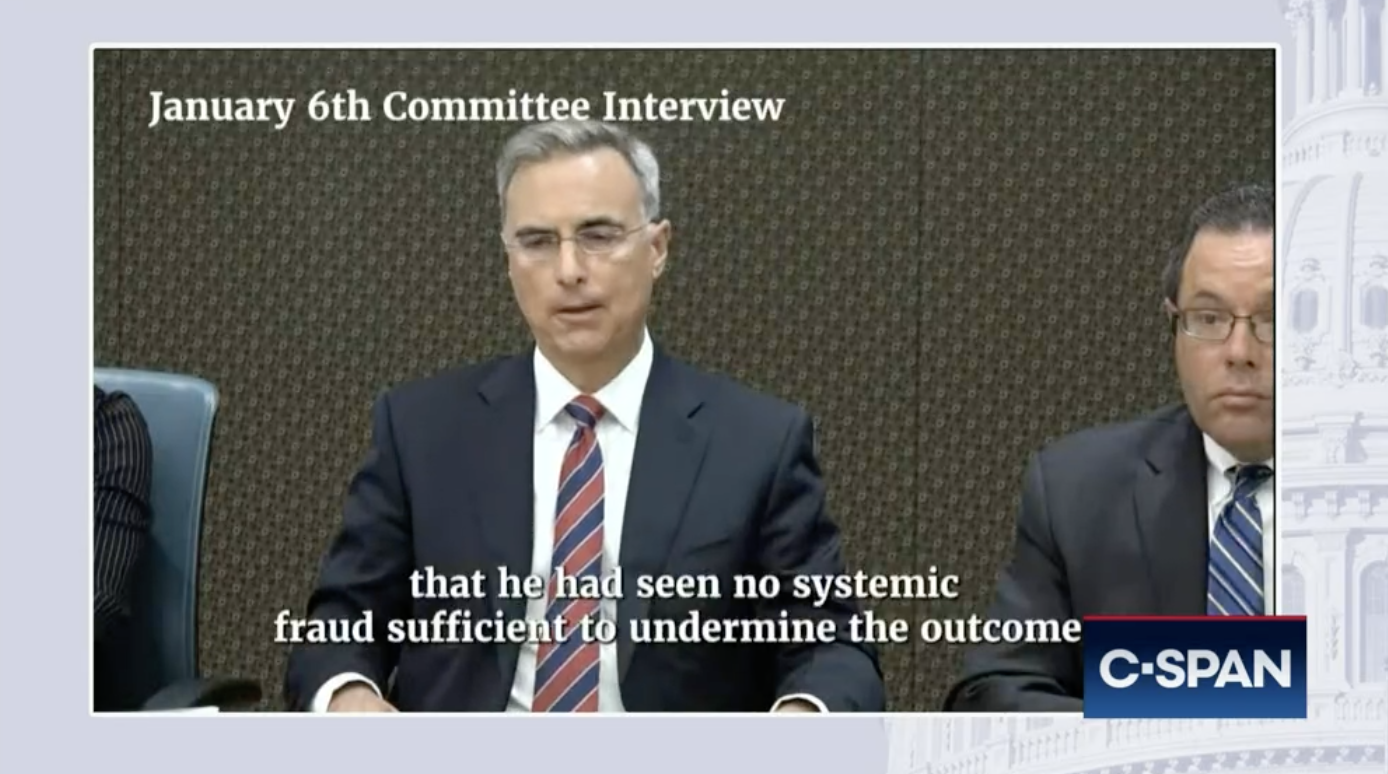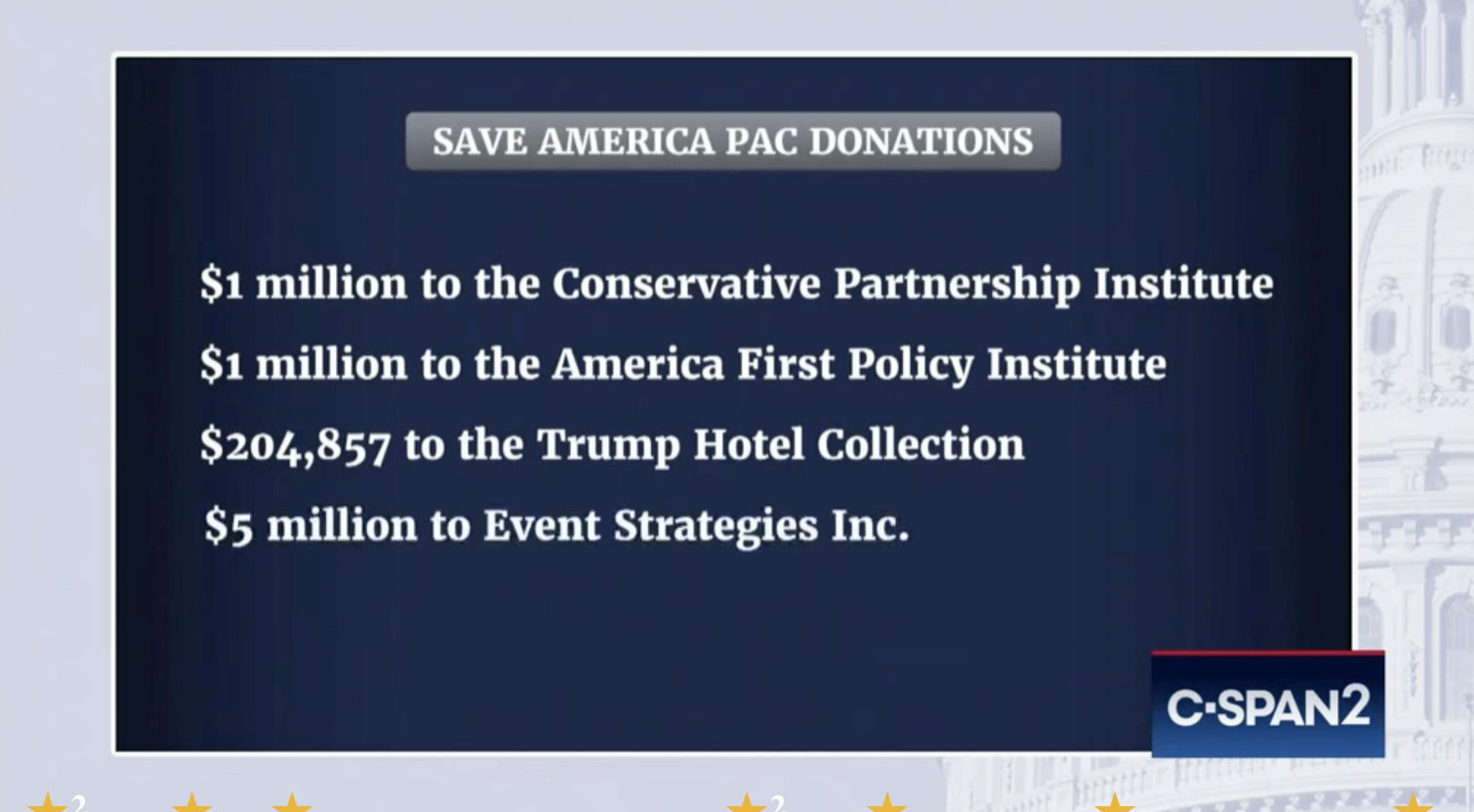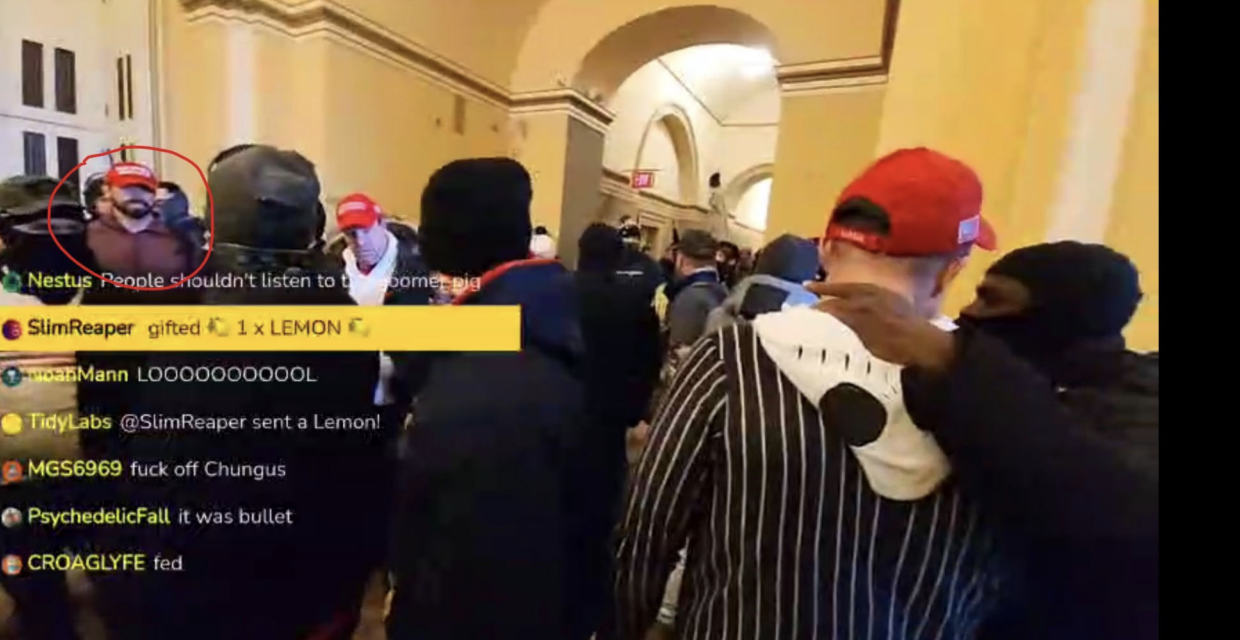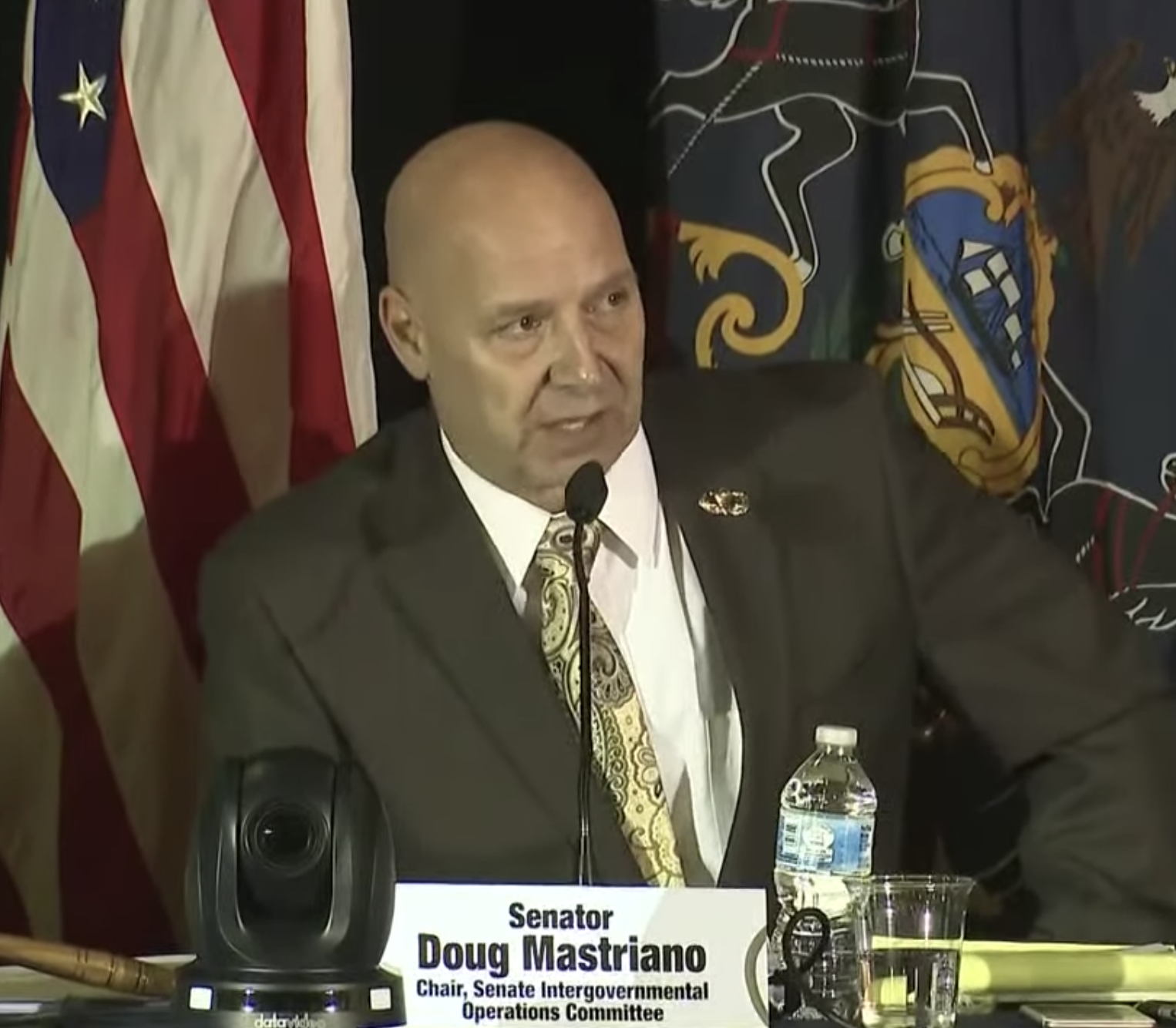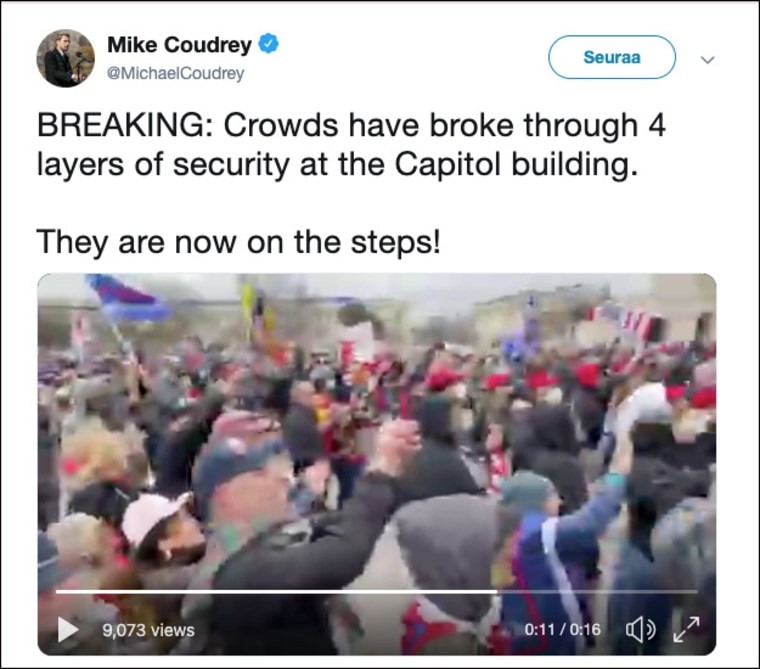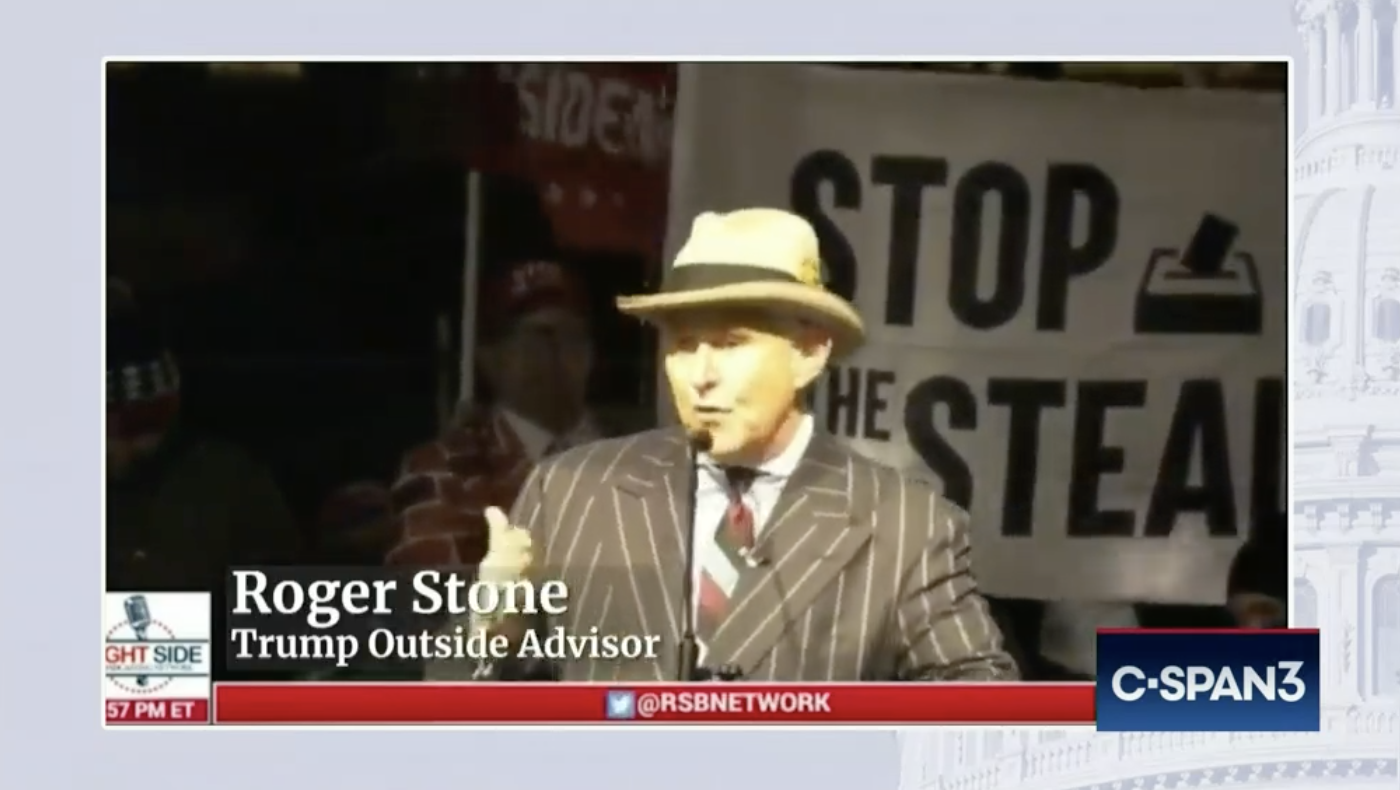After pundits have spent 18 months complaining (falsely) that DOJ was only pursuing misdemeanor cases against January 6 culprits, at least a dozen media outlets assigned reporters to cover the week-long misdemeanor contempt trial for Steve Bannon. The triumphal coverage of Bannon’s guilty verdict will, I fear, continue to misinform viewers about the impact of this guilty verdict.
Bannon’s was almost certainly not the most important development in a January 6 misdemeanor case last week.
That’s true, first of all, because Bannon won’t go to prison anytime soon. After Judge Carl Nichols excluded most defenses Bannon would pursue, Bannon’s attorneys spent their time laying a record on issues they’ll raise in an appeal. Some are frivolous — about the make-up of the committee, about whether Bennie Thompson signed Bannon’s subpoena, about Bannon’s last-minute stunt to pretend he was cooperating. But one of the grounds on which Bannon will appeal, on whether he could rely on his attorney’s advice in blowing off the subpoena, is one about which Nichols agrees with Bannon — indeed, Nichols stated that he agreed over and over, as Josh Gerstein laid out.
Perhaps the most central figure in Bannon’s conviction Friday and the key to his potential victory in any appeal is a long-dead Detroit mobster and bootlegger, Peter “Horseface” Licavoli.
Licavoli died almost four decades ago and spent time in federal prison on a colorful variety of charges, including tax evasion, bribery and trafficking in stolen art. However, it was his refusal to testify to Sen. Estes Kefauver’s 1951 hearings on organized crime that produced a legal precedent central to Bannon’s case.
A decade later, the D.C. Circuit Court of Appeals upheld a contempt-of-Congress conviction against Licavoli, ruling that he could not rely on his lawyer’s legal advice as a defense.
While the precedent was set 61 years ago, U.S. District Court Carl Nichols concluded it is still good law and, as a result, Bannon could not use the advice-of-counsel defense. The ruling also undercut Bannon’s ability to argue that executive privilege excused him from showing up in response to the subpoena.
However, Nichols said on several occasions before and during the trial that he thinks the Licavoli case may well be wrong under modern legal standards, but he was compelled to apply it anyway.
“I was bound by D.C. Circuit precedent that I’m not even sure is right,” the Trump-appointed judge said Thursday.
Now, Bannon’s lawyers will face the task of trying to get the decision overturned or deemed irrelevant, something that may require getting Bannon’s case in front of the full bench of the appeals court or even taking it to the Supreme Court.
In reality, Bannon’s attorney told him — BEWARE — that his failure to comply would get him referred for prosecution. Bannon was warned he’d go to jail for blowing off this subpoena.
But the facts of whether Bannon really relied on his attorney’s advice would not get adjudicated until after the DC Circuit — and after it, SCOTUS — have a chance to review the precedent. And since Nichols agrees with Bannon that the precedent stinks (and since Bannon is a white collar criminal), he’s virtually certain to let Bannon stay out of jail for his appeal.
So Bannon is probably not going to jail for at least a year. And the precedent of this conviction — showing that the legal system allows a well-lawyered defendant all sorts of ways to stall a misdemeanor sentence — is not one that’s likely to persuade the few remaining people whom it would cover, most notably Peter Navarro and Ginni Thomas, to plead out or cooperate (members of Congress defying subpoenas will have entirely different reasons to challenge one, and people like Tony Ornato have already cooperated, in limited form, with the January 6 Committee).
Meanwhile, there were two other misdemeanor cases of probable greater significance to holding the perpetrators of January 6 accountable.
The first is Friday’s guilty plea of Anthime “Baked Alaska” Gionet for the standard parading charge most other misdemeanants plead to.
Gionet won’t be going to jail anytime soon, either: his sentencing is set for January 12. Though, given Gionet’s difficulties of late staying out of legal trouble, it is noteworthy that his plea includes the standard condition that committing a crime while his sentencing is pending could void the entire plea.
As noted, Gionet’s plea is just the standard misdemeanor plea that hundreds of other January 6 rioters have already pled to. But both Gionet’s public claims that the government was threatening Gionet with an obstruction charge if he did not cooperate, and the discussion at his aborted plea hearing in May, make it clear that this was one of the misdemeanor pleas in which the government obtains limited cooperation on the front end, in Gionet’s case, probably in the form of sharing communications that would otherwise require decryption (Brandon Straka, whose sentencing memo included reference to a sealed cooperation description, is the most notable of these pleas, but Proud Boy Jeff Finley also seems to have gotten one; a continuation in Finley’s sentencing “to fully evaluate the nature and seriousness of the defendant’s misconduct” suggests he may not be as cooperative as the government expected). Gionet’s plea was originally offered in December with a deadline of January 7, 2022. It seems to have taken some months to fulfill the terms of the deal. Gionet got cute at his first change of plea hearing in May, and proclaimed his own innocence, which almost got him in a place where the government could use the information he proffered in his own felony charges. Publicly, then, Gionet’s plea only means we’re deprived of the amusement of watching him continue to fuck himself, as he did in May; but behind the scenes, DOJ seems to believe he helped the overall investigation, likely by providing evidence against other movement extremists who made the attack on the Capitol successful but who did not enter it.
These misdemeanor plea deals offer less public hint at what the government got in exchange (which may be one reason DOJ likes them). Gionet’s statement of offense focuses mostly on the abundant evidence to prove that he knew he shouldn’t be in the Capitol, as well as the evidence DOJ would have used to prove an obstruction charge against him (which they would now have sworn allocution to if Gionet tries to renege again).
Unsurprisingly for an asshole like Gionet, it is full of the kind of inflammatory rhetoric that has really offended Judge Emmet Sullivan, who is presiding over Gionet’s case, when sentencing other January 6 trespassers. Among other things, Gionet admitted to saying:
- “Let’s go, 1776”
- “We are the Kraken, unleash the Kraken … trust the fucking plan, let’s go.”
- “This was a fraudulent election, we’re standing up for the truth, God’s truth.”
- [Speaking through a broken window to other rioters] “Come in, let’s go, come on in, make yourselves at home.”
- [Speaking into the phone in a Senator’s office] “We need to get our boy, Donald J. Trump, into office. … America First is inevitable, let’s go, fuck globalists, let’s go.”
- [In another Senator’s office, probably Jeff Merkley’s] “Occupy the Capitol, let’s go, we ain’t leaving this bitch.”
- [To the cops telling him to leave] “You’re a fucking oathbreaker, you piece of shit, fuck you, fuck you, fuck you, you piece of shit, you broke your oath to the Constitution, fuck you.”
With both Gionet and Straka before him, DOJ seemed to have abundant evidence to prove an obstruction case, and the pundits complaining about the misdemeanor pleas might be better served asking whether DOJ is getting enough value from these misdemeanor pleas to justify not charging someone as toxic as Gionet with a felony.
I wrote more about the various ways DOJ is using misdemeanor pleas to advance the investigation here.
But we won’t be able to weigh that soon, if ever. For now, though, DOJ seems to believe they got enough cooperation from a key influencer to let him avoid a felony conviction (though I would be shocked if Sullivan let him avoid prison altogether).
The way DOJ has been using misdemeanor prosecutions to advance the overall investigation is important background to something that happened in the case of Hatchet Speed last week. Until his arrest, Speed was a Naval petty officer and cleared defense contractor for National Reconnaissance Office.
The investigative steps described in Speed’s arrest affidavit suggest that after FBI identified him via the Google GeoFence (he was usually masked when in the Capitol), they used an undercover FBI officer to meet with him, during which meetings he provided contradictory but damning explanations for his actions on January 6, including that he went to insurrection with some Proud Boys.
During this meeting, SPEED admitted that he entered the U.S. Capitol on January 6, 2021, and that he “made it to the Rotunda down below.” SPEED told UCE-1 that going to the Capitol on January 6 “was always the plan.” He explained, “We would listen to Donald Trump then all of us would go to the Capitol. Now the reason we were going to the Capitol was to protest what was going on in the Capitol… what they were doing was counting the ballots.”
On March 22, 2022, SPEED met with UCE-1 again. During that meeting, SPEED provided further details about his activities at the U.S. Capitol on January 6, 2021. SPEED stated that he went to the Capitol on January 6 with friends who were members of the Proud Boys, with whom he keeps in contact. 1 SPEED blamed “Antifa” for breaking windows and entering off-limit areas of the Capitol, and he blamed the police for using tear gas in a manner to force the crowd into the off-limit areas.
SPEED also blamed Antifa for knocking down fencing around the Capitol. He described walking over fencing and worrying about tripping, but not knowing that he was trespassing at the time.
SPEED claimed that he and the others initially did not intend to enter the Capitol. He said that his plan was to be outside the Capitol and listen to speeches “for the 12 hours it would take to do the 2-hour rebuttal for each of the 6 contested states.” However, SPEED explained, “what the FBI did in advance is they arrested or threatened all the people they knew were going to be the speakers so that there would be no leadership. They wanted to make sure there was no one there…they wanted to maximize the possibility of violence.”
[snip]
SPEED further told UCE-1 that “there was this staircase leading up to the Senate side, where like we knew it was ‘off limits’ because that was, also the staircase was covered by the structure they’d set up the inauguration…and so, we were like we don’t need to go up there. We’re not here to go in the building. We’re just here to make a statement ‘we are here and we are paying attention’…but, the ANTIFA kept sending people up the staircase and trying to get people to come and we’re all like ‘no, we’re not going to follow you’…”
SPEED decided to go up the staircase because he was “tired of getting tear gassed.” Once up the staircase, SPEED claimed he intended to stay outside the Capitol Building at “this huge portico porch thing which can hold a couple thousand people.” However, SPEED said, he got tear gassed again. He also heard that Vice President Mike Pence had “validated” certain ballots they considered “invalid.”
SPEED described Pence’s act as a betrayal. SPEED stated that, at that point, he “was like, ‘I’m going in there. Like I have no respect for people in this building. They have no respect for me. I have no respect for them.’” SPEED stated, “[S]o we all went in and we took control. Like, when you have that many thousands of people, like there’s nothing the cops can do…it’s impressive.” [my emphasis]
The visual confirmation of Speed’s presence in the Capitol — from a moment when he let down the mask he had gotten on Amazon on December 3 — relies on video that Gionet took (though that’s fairly common).
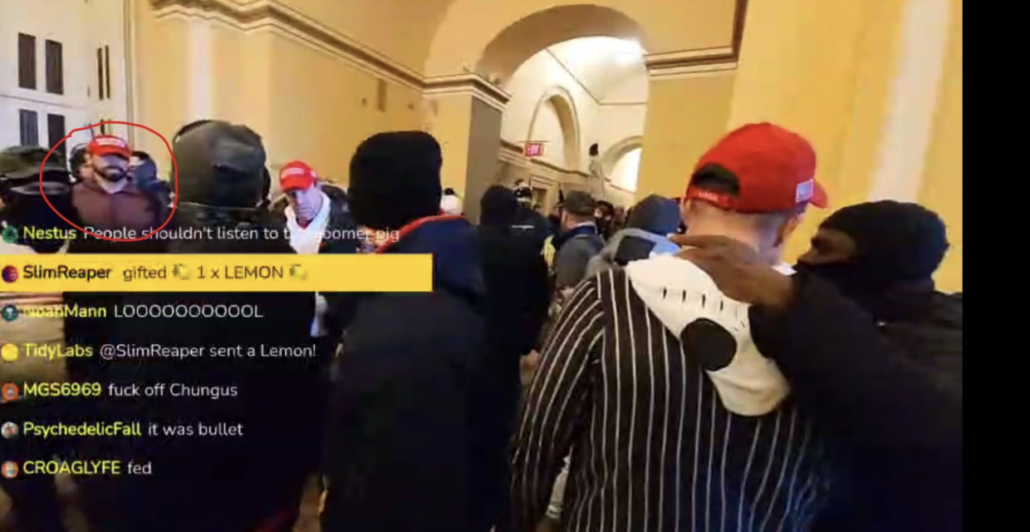
This is the kind of guy — a cleared defense contractor who went to the insurrection with some Proud Boys “with whom he keeps in contact” — whose cooperation DOJ has used fruitfully in the past. He’s also the kind of guy who presents the ongoing urgent concern about our Deep State being riddled with militia sympathizers.
Perhaps because of the ambivalence of Speed’s comments to the undercover officer, though, he was charged just with trespassing. His case was assigned to Trevor McFadden, the Trump appointed judge who has long suggested, evidence to the contrary, that DOJ was treating January 6 rioters unfairly as compared to lefty protestors.
McFadden has long criticized DOJ’s continued charging of misdemeanor cases, partly because he thinks it treats January 6 trespassers unfairly, partly because it means he has to work hard. Presumably in response and possibly in an attempt to force DOJ to stop, McFadden issued a standing order for misdemeanor cases before him that requires — on threat of sanctions — an immediate plea offer and all defendant-specific discovery within a week of the initial status hearing.
The Government is required to provide all “defendant-specific” discovery information to the Defense by the Initial Status Conference or within one week of the Defense request for reciprocal discovery under Fed. R. Crim. P. 16(b)(1), whichever is later. Regardless of any Defense request, the deadline for disclosure of any information covered by LCrR 5.1 is the Initial Status Conference. 1 Failure to strictly follow these timelines may result in sanctions, including likely Dismissal for Failure to Prosecute. The Government is also expected to provide any plea offer that it intends to make no later than the Initial Status Conference.
This makes it impossible for DOJ to use misdemeanor charges as an investigative tool. And the deadlines McFadden imposes, plus his explicit statements making it clear he will let misdemeanants off easy, makes it virtually impossible to use misdemeanors to obtain cooperation, too.
In a hearing on Thursday, McFadden made it clear that he does intend to impose sanctions if DOJ fails to meet the discovery deadline, even in spite of two specific characteristics of this case: that it involves classified discovery (which is not surprising given that Hatchet had clearance) and that DOJ seized 22 devices when they arrested Hatchet, some of which are encrypted. To add to the near impossibility that DOJ can comply with McFadden’s orders, the AUSA in this case, Alexis Loeb (who is prosecuting a number of Proud Boy and Proud Boy adjacent cases) is in San Francisco, so it’s not like she can go sit in Quantico to speed up the exploitation of Hatchet’s devices.
There’s a bit of a loophole here, in that even the standard misdemeanor pleas require sharing ones devices with the FBI, so to take advantage of what would surely be a punishment free plea deal, Hatchet might be required to open his devices for the FBI.
McFadden has, in the past, rewarded a January 6 defendant for espousing civil war. Here, he seems set to ensure that a Naval petty officer with ties to the militia that led the attack on the Capitol likewise escapes accountability.
If that happens, it may lead DOJ to rethink its charging patterns accordingly.
Update: Corrected Speed’s rank.

